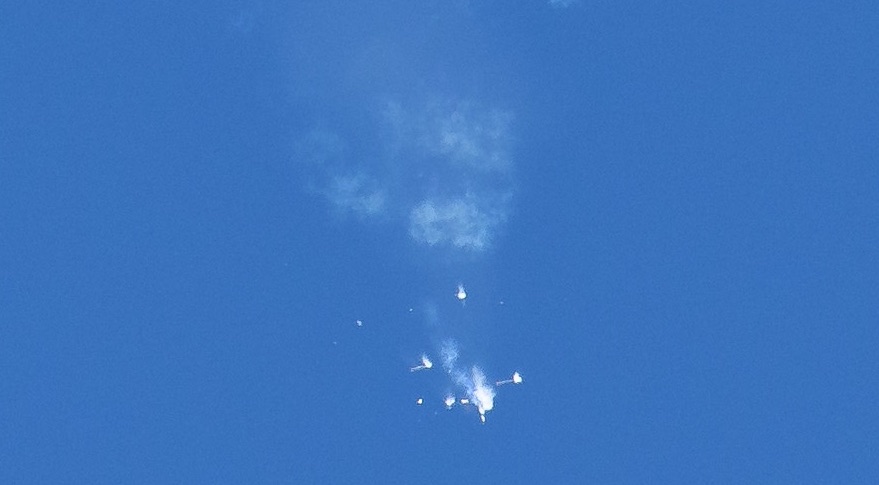Roscosmos to Complete Soyuz Accident Investigation This Month

WASHINGTON — The final report into the launch failure that forced the abort of a crewed Soyuz spacecraft is scheduled for completion by the end of the month, the Russian state space corporation Roscosmos announced Oct. 20.
In a brief statement, Roscosmos said the state commission investigating the Oct. 11 accident met Oct. 20 and approved a "preliminary report" on the cause of the failure during the Soyuz MS-10 launch. Roscosmos did not disclose any details about the report's contents, such as what cause the investigators identified.
Roscosmos said that the final report, including recommendations to prevent a similar problem from occurring again, will be completed on Oct. 30. It didn't state when that report, or some summary of it, will be publicly released.
While the statement didn't discuss the causes of the failure, speculation has centered on a problem with one of the four strap-on boosters during staging, two minutes after liftoff. The boosters did not separate cleanly from the rocket as seen in video taken from the ground of the launch.
The Russian news service RIA Novosti said Oct. 20 that one of the boosters was not properly attached to the rocket’s core stage during assembly. According to that report, citing a "space agency source," a mounting lug was bent when the side booster was "forcefully connected" to the core stage, and that workers then added lubricant to ensure that it would separate. However, during separation, that side booster hit the core stage and damaged it, leading to the launch abort.
The Roscosmos statement did not mention when the Soyuz boosters would be approved to resume crewed flights. Russian officials have previously stated that the rocket will perform as many as three uncrewed flights, including a Progress cargo launch, before crewed flights would resume.
The next crewed Soyuz mission, Soyuz MS-11, was scheduled to launch in mid-December prior to the accident, delivering an American, a Canadian and a Russian to the station. While Russian officials have suggested that mission could be moved up to late November, no decision on that flight has been made by Roscosmos or the other International Space Station partners.
Get the Space.com Newsletter
Breaking space news, the latest updates on rocket launches, skywatching events and more!
The three people currently on the ISS — Alexander Gerst of ESA, Serena Auñón-Chancellor of NASA and Sergey Prokopyev of Roscosmos — will need to return home by the end of the year, when the Soyuz MS-09 spacecraft currently docked at the ISS reaches the end of its certified orbital lifetime.
The investigation into the launch failure is going much faster than an earlier investigation into a hole found in the Soyuz MS-09 spacecraft's orbital module in late August. That hole, patched hours after its discovery, may have been caused by mishandling of the spacecraft during launch preparations.
Roscosmos officials said in early October, prior to the launch failure, said they would complete the investigation into the hole by mid-November, after cosmonauts performed a spacewalk to inspect the spacecraft's exterior. That spacewalk was postponed after the launch failure.
This story was provided by SpaceNews, dedicated to covering all aspects of the space industry.
Join our Space Forums to keep talking space on the latest missions, night sky and more! And if you have a news tip, correction or comment, let us know at: community@space.com.

Jeff Foust is a Senior Staff Writer at SpaceNews, a space industry news magazine and website, where he writes about space policy, commercial spaceflight and other aerospace industry topics. Jeff has a Ph.D. in planetary sciences from the Massachusetts Institute of Technology and earned a bachelor's degree in geophysics and planetary science from the California Institute of Technology. You can see Jeff's latest projects by following him on Twitter.










